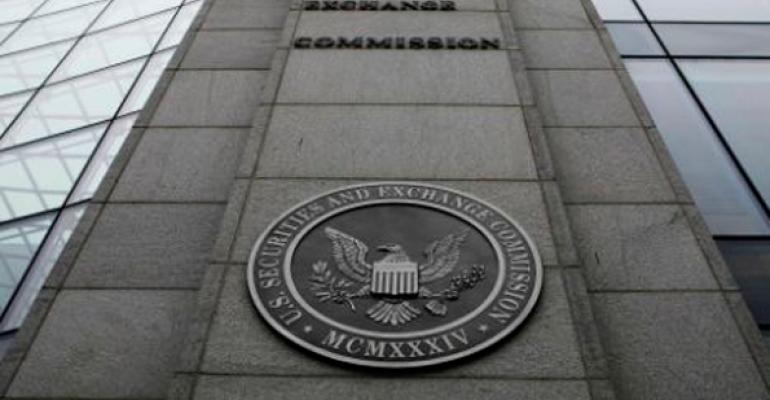Robo advisor Wealthfront and now-defunct Hedgeable have agreed to pay fines related to charges filed against them by the Securities and Exchange Commission.
Wealthfront, the California-based robo advisor with more than $11 billion in assets, made false statements about a tax-loss harvesting strategy it offered to clients, the regulator said in a statement Friday morning. The SEC claimed the company told clients using its strategy that it would monitor for any transactions that might trigger a wash sale—which can diminish the benefits of the harvesting strategy—but failed to do so. Over more than three years Wealthfront deployed its tax-loss harvesting strategy, at least 31 percent of the accounts were subject to wash sales.
The SEC also found that Wealthfront also “improperly re-tweeted prohibited client testimonials, paid bloggers for client referrals without the required disclosure and documentation, and failed to maintain a compliance program reasonably designed to prevent violations of the securities laws.”
New York City-based Hedgeable, which managed approximately $81 million, was accused of making a series of misleading statements about its investment performance, in a separate order by the SEC.
From 2016 until April 2017, the company posted on its website and social media purported comparisons of the investment performance of Hedgable’s clients with those with two other robo advisors. But those performance comparisons were misleading because Hedgeable included less than 4 percent of its client accounts, which had higher-than-average returns, according to the SEC. The comparison was also not made against competitors’ actual trading models.
Hedgeable also failed to maintain required documentation and a compliance program “reasonably designed to prevent violations of the securities laws,” the SEC said.
Both Wealthfront and Hedgeable, while neither admitting or denying the charges, settled and agreed to pay fines of $250,000 and $80,000, respectively.
“This is another example of the interesting intersection of the evolution of the industry and the application of established rules and guidance. In this case, the SEC takes the positions that re-tweeting in some cases may very well be prohibited testimonials, paid referrals are likely solicitors, and unintended gaps may lead to false statements,” said Hope Newsome, CCO and general counsel of Fla.-based Triloma Financial Group, an investment management firm. “This serves as a good reminder to all advisors, including robo advisors that as new regulatory issues arise, we must still remain focused on how the Advisers Act applies throughout the changing environment.”
Robo advisors aren’t exempt from anti-fraud provisions, noted Ian Meiksins, CCO at Graydon Compliance Solutions, a firm specializing in compliance solutions for registered investment advisors out of Fort Mitchell, Ky. “They may have a larger, more disconnected audience, but ultimately they have to follow the same rules as traditional wealth managers. Robo advisors cannot advertise and position themselves like a normal tech company. They’re held to different standards. The testimonial restrictions are especially difficult for people outside the industry to understand and follow,’ he added. The decentralized nature of robos’ client base doesn’t always mesh with “standard marketing practices for a tech startup,” he observed. In this case, marketing mistakes led to censure and fines.
At least one other robo advisor has been fined by regulators this year. In June, Betterment, a New York City-based firm that manages $14.1 billion, agreed to pay $400,000 in response to a claim by the Financial Industry Regulatory Authority that it was “window dressing” by altering how it computed customer reserves.
In a statement about the charges, Wealthfront said: “We take our regulatory duties seriously at Wealthfront and are happy to have reached a settlement with the SEC. The settlement order addressed Wealthfront’s retweets of clients’ positive tweets from our corporate account and compensation to some bloggers for client referrals without proper disclosures. Additionally, Wealthfront did not have proper disclosure in its tax-loss harvesting white paper concerning monitoring for any and all wash sales that could occur in client accounts. For example, a wash sale can be triggered by infrequent events outside of tax-loss harvesting trading, including a client changing their risk score or a withdrawal. During the period Jan. 1, 2014 to Dec. 31, 2016, wash sales made up approximately 2.3 percent of tax losses harvested for the benefit of clients. Therefore, the average Wealthfront client would have received 5.67 percent of the total annual harvesting yield versus 5.8 percent.”
Mike Kane, the former co-founder and chief investment office of Hedgeable, which closed down its investment management earlier this year, declined to comment.





